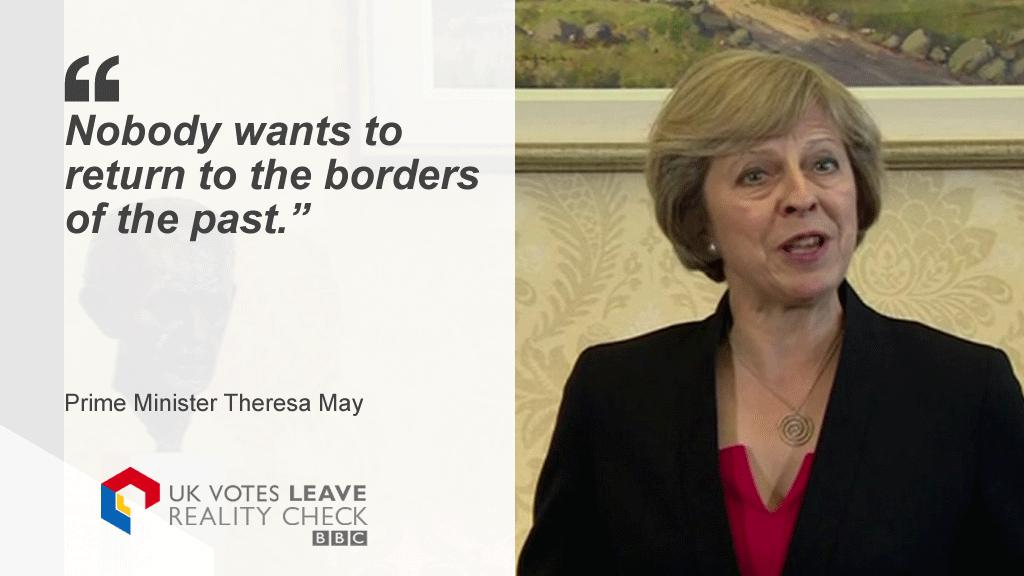Brexit: How would cross-border customs work?
- Published
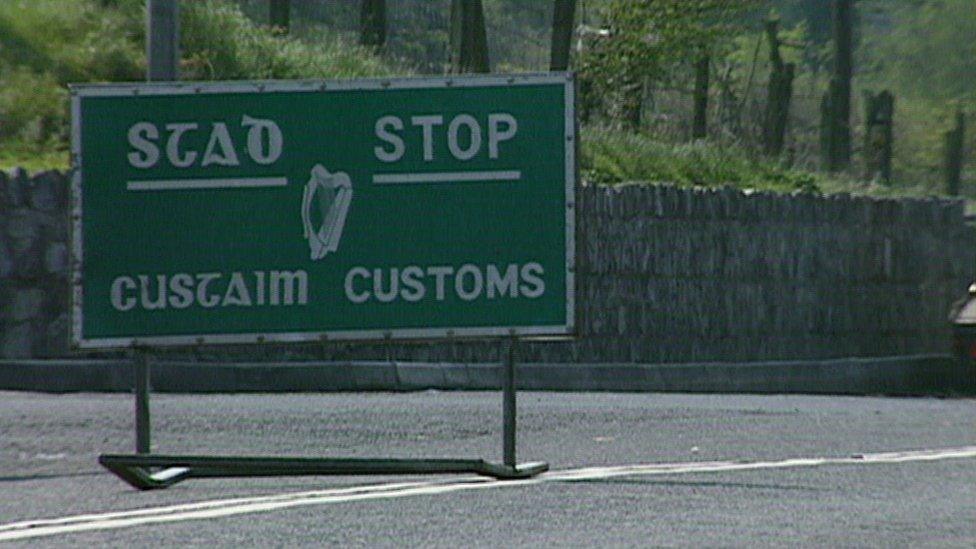
Will the UK's withdrawal from the EU mean a return to border controls?
Despite the sunny weather there is a sense of gloom in Dublin - both about the European Commission ruling on Apple and about Brexit.
The Irish government has worries about how the UK vote will affect the common travel area that preceded both states joining the European Union, the estimated 1bn euros a week in trade between the UK and Ireland, but perhaps most importantly of all about Northern Ireland, the implications for the peace process and whether there will be a hard or soft border.
As of now, nobody knows the answers to the issues raised by those concerns but the government in Dublin says it is difficult to imagine a situation where there will be no border controls on the movement of goods.
But will it be like the past when there were frequent queues on the border?
Hugh McAnulty, whose Warrenpoint-based family coach business dates back to 1819, doesn't think so.
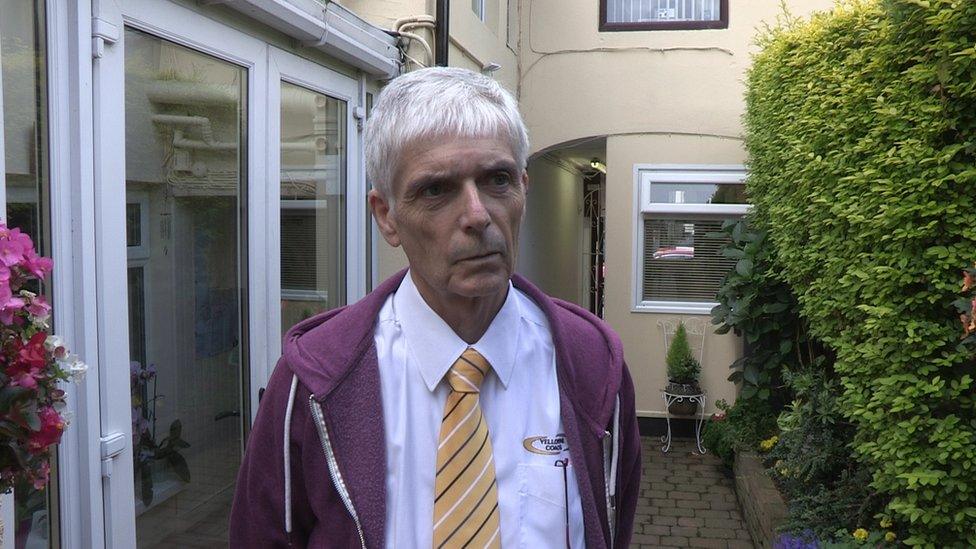
Looking to the future Hugh McAnulty doesn't see major border delays
"I can't visualise it because with the computer system they have now they should be able to recognise who is legal and who is not legal, and what should be going across the border," he said.
Looking to the future Mr McAnulty doesn't see major border delays but, as for the past, he doesn't think the British and Northern Ireland authorities have used EU membership at all well for developing the road system.
"Whenever the South were in the EEC, look at the road system they built up, the best motorway system now in the country," he said.
"Our motorway system is till the M1 and parts of the M2. The worst part of it is coming from Belfast to Newry, where the speed limit changes maybe six or seven times. And you're still on dual carriageway.
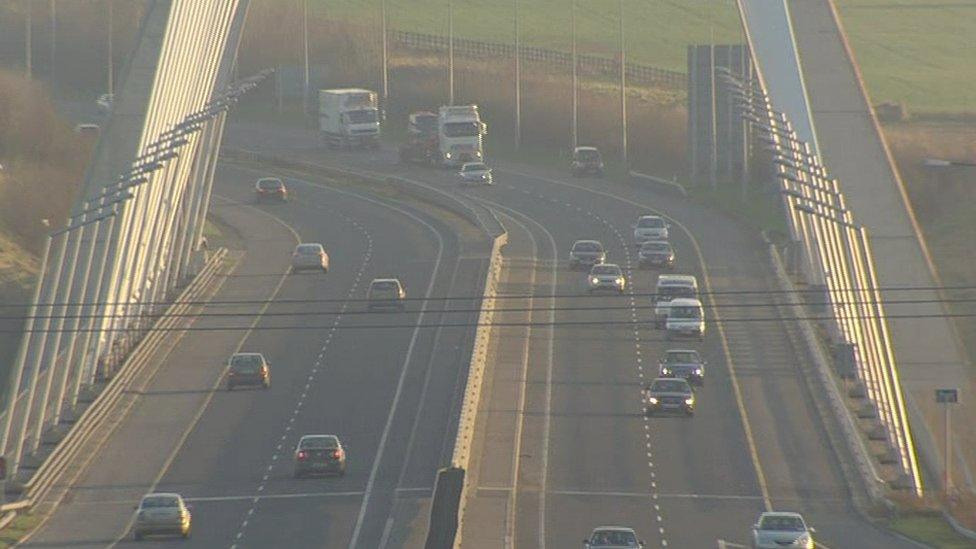
Mr McAnulty said the current motorway system between Northern Ireland and the Republic of Ireland is the best there has ever been
"We didn't get out of the EEC what we should have got while we were still in it."
Scandinavian model
The Norwegians, outside the EU, and their Swedish neighbours, inside it, know all about these problems.
There are random customs checks and some video cameras on cross-border roads noting the registrations of ordinary vehicles and trucks.
But Solve Steinhovden, from the Norwegian Embassy in Dublin, says there are special rules for heavy goods vehicles.
"It is compulsory for the drivers of lorries to report to customs offices along the border, there are 10 of those but approximately 70 border crossings. So, it's just a small selection of those.
"There they will have to declare the cargo they are carrying. And if customs officers find anything suspicious with the declaration, they have the right to inspection of the cargo."
The new technology that may help the authorities deal with future customs issues already exists.
Registered users
Traffic along the M50 motorway used to have to stop at toll plazas but not anymore.
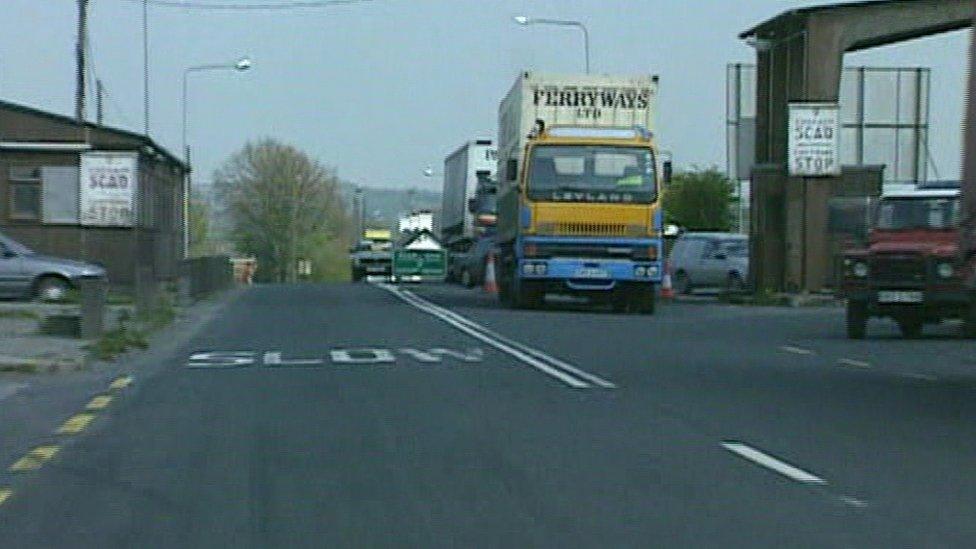
Delays crossing the border used to be a common occurrence for those travelling between Northern Ireland and the Republic of Ireland
There are cameras in the gantry above monitoring the 135,000 plus vehicles using the road every day.
The images are sent back to a site to see if the user is a registered customer and if payment is not forthcoming then the matter is handed over to those seeking to enforce the system.
Cathal Masterson, head of tolling at Transport Infrastructure Ireland, believes the fewer delays the less the cost to business.
"We use the new technology to reduce the queues at the toll plazas. What we're doing is we're automatically processing those vehicles without those vehicles needing to stop at the old toll plaza.
"There's no reason why that same technology couldn't be used at border crossings and customs points again to allow vehicles to freely move across the border but also to enable the authorities to keep track of those vehicles and make sure they can process them in an efficient way."
Although we don't yet know what Brexit will actually mean and it is still largely speculative, at least some thought has been given as to how the customs issue might be dealt with in future.
- Published28 March 2017
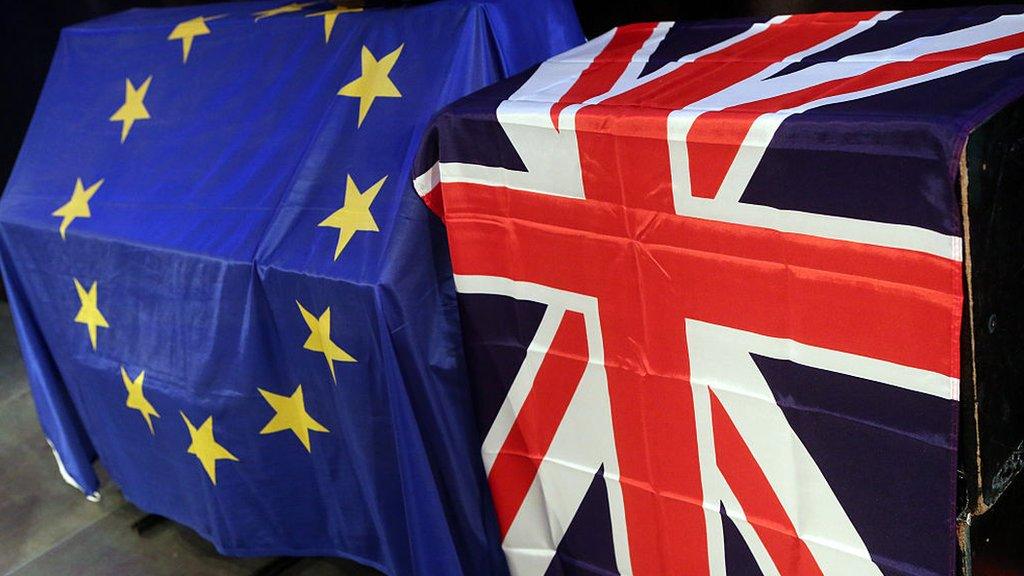
- Published1 September 2016
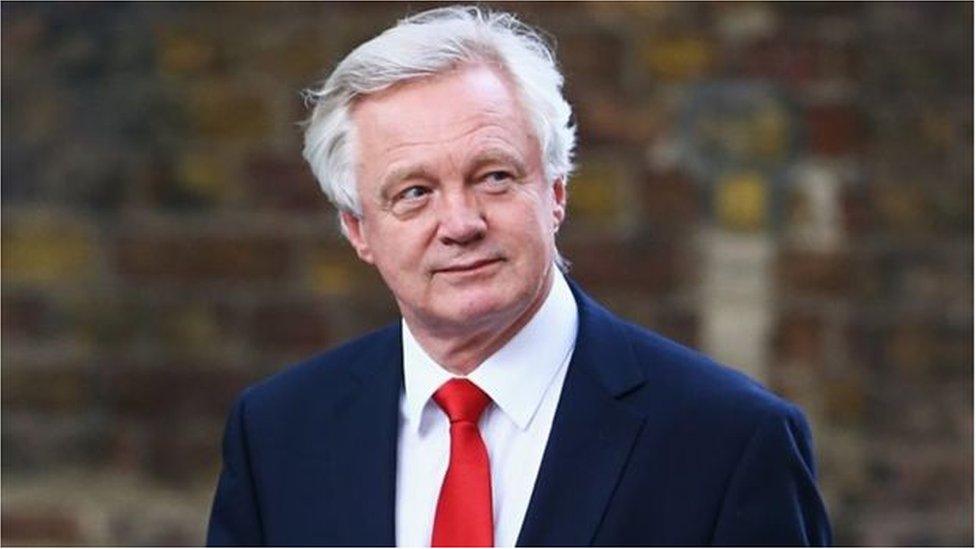
- Published4 August 2016
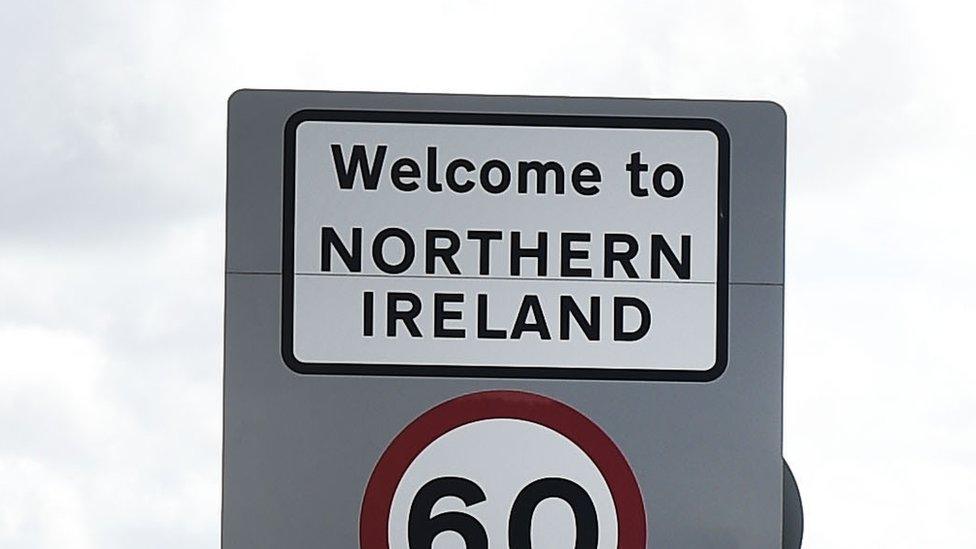
- Published25 July 2016
